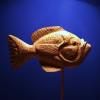Search the Community
Showing results for tags 'parameters'.
-
Written by: Origami, WAMAS President I would venture a guess that most of us, when we started out, were test kit junkies. First you're testing daily (if not several times a day), then every couple of days, then weekly, and then, as things stabilize and you begin to really understand your tank, monthly or less. And, even then, most experienced aquarists will test only a few parameters on a regular basis unless they suspect that something is amiss. There's really no all-in-one solution but there are new products being developed and introduced that are trying to fill that void. They're new and, likely, expensive for now. The graphs that you see are probably tying in data that they're recording in some app to a widget image in their signature. Testing salinity is probably one of the more frequently performed tests because, every day, it's being adjusted by evaporation and your top off actions. Frequency of chemical or ionic testing should be variable and driven by a variety of conditions. When the tank is just being set up, you're testing for things like ammonia, nitrite and nitrate to understand where you are in the initial nitrogen cycling of the tank. You're doing this, of course, to determine if the water is safe for other, higher forms of life such as your clean up crew or small fish. As the tank settles into its rhythm, you may continue testing nitrate as you introduce fish just to make sure that your biological filtration (bacteria) is staying caught up. After a while, you find that these tests are consistently reading zero, so you space the testing out more and more until you're probably not doing those tests anymore. If you start growing corals or anything that is actively putting down a calcium carbonate type of shell, you'll probably be interested in calcium, alkalinity and magnesium levels. Alkalinity is the more volatile of the three and becomes the most regularly performed test of these three. That's because alkalinity is generally consumed in proportion to calcium: 2.8 dKH (or 1 meq/l) of alkalinity for every 20 ppm of calcium. As a result of this ratio, you can often predict, with decent (and practical) results, what your calcium reading will be from alkalinity readings. Thus, in tanks where we're replenishing (dosing) ions lost to consumption, if we're using balanced additives, then we can make adjustments to both based upon the one alkalinity test. Of course, we may do a spot check from time to time because the consumption ratio can be very slightly different in different tanks. (That's mostly because of magnesium, by the way.) Speaking of magnesium, it's one of the essential ions in a reef tank, but it's also present in large amounts. Its consumption is proportionately less and so it's tested less frequently than, say, alkalinity or calcium. Less frequently tested parameters are phosphate, (and even less frequently) potassium, iron, strontium, silicate, copper, and iodine. Please keep in mind that most of us start to recognize signs that something may not be right and, as a result, when to test beyond normal spot-checking. When all seems to be going well, you probably don't need to test that much. To relate it to our own bodies: Do you go to the doctor much when you're feeling well? So, in order of frequency of use (for a stable, mature tank in the hands of somebody with some experience): Salinity (get a refractometer and calibration fluid) & temperature Alkalinity (I use a Hanna meter, but this is not the most cost effective; I use API as an inexpensive backup, but also have Salifert and Red Sea Pro kits on the shelf) Calcium (I use Red Sea Pro, Salifert and API test kits here) Magnesium (Red Sea Pro and Salifert again) Less important, unless something's wrong (lots of algae, browning or sick corals) Nitrate Phosphate Others (if dosing, or under the right circumstances) Ammonia (a better alternative might just be to put a Seachem Ammonia badge on the side of your tank or sump as a flag to problems and replace it annually) Potassium Iron Copper etc. Note that I didn't say a word about pH. For me, pH is not something that I twiddle with directly, but which just gives me an additional data point (or points). I have a pH probe on my controller and I can tell (from experience) for example, if my alk is not being replenished or if somebody opens a window in the house to let in some fresh air. It's not a critical parameter in most cases and, in the hands of a new hobbyist, can lead them to unwarranted concern or dosing additives or other products to chase some phantom ideal. Testing pH is fine, but you should understand how (and why) it varies through the course of a day and over seasons, before you start letting it drive any action you want to take. Tom
- 1 reply
-
- Tests
- parameters
-
(and 1 more)
Tagged with:


